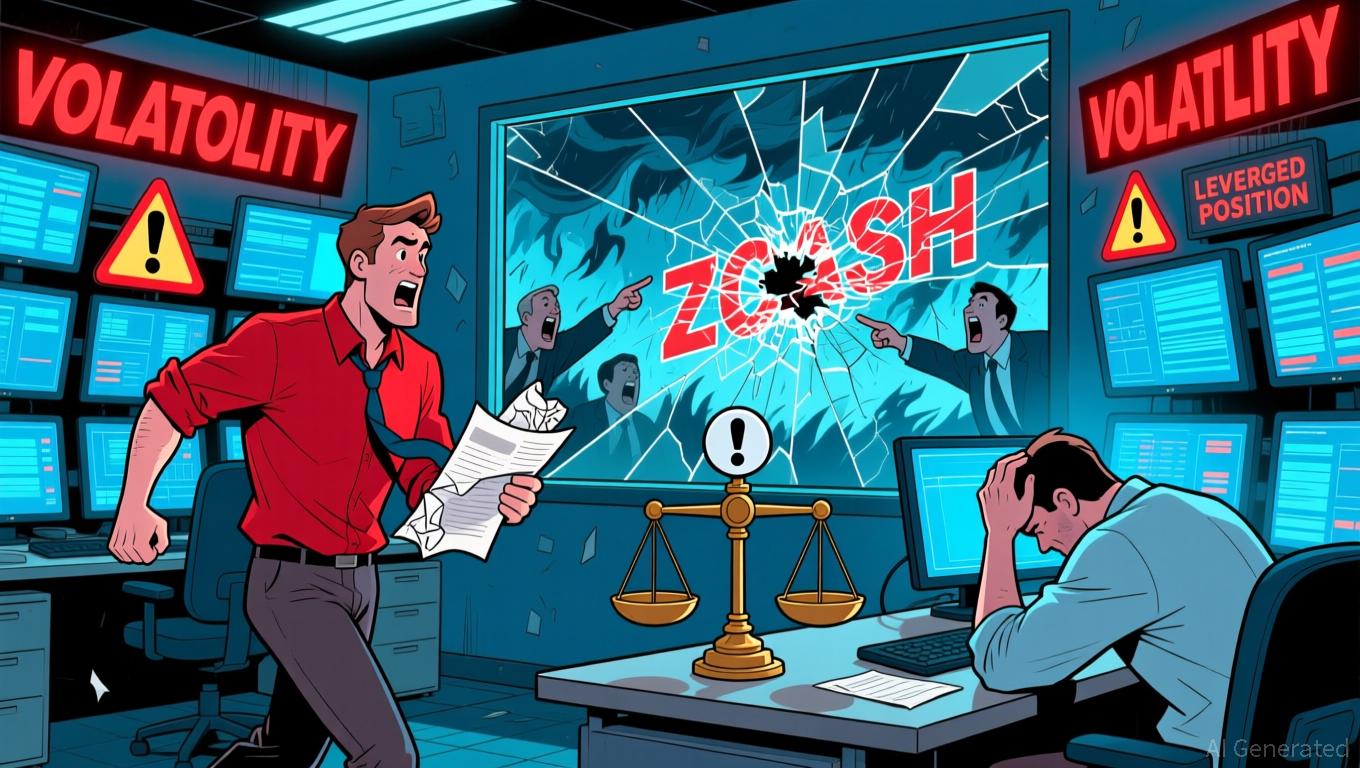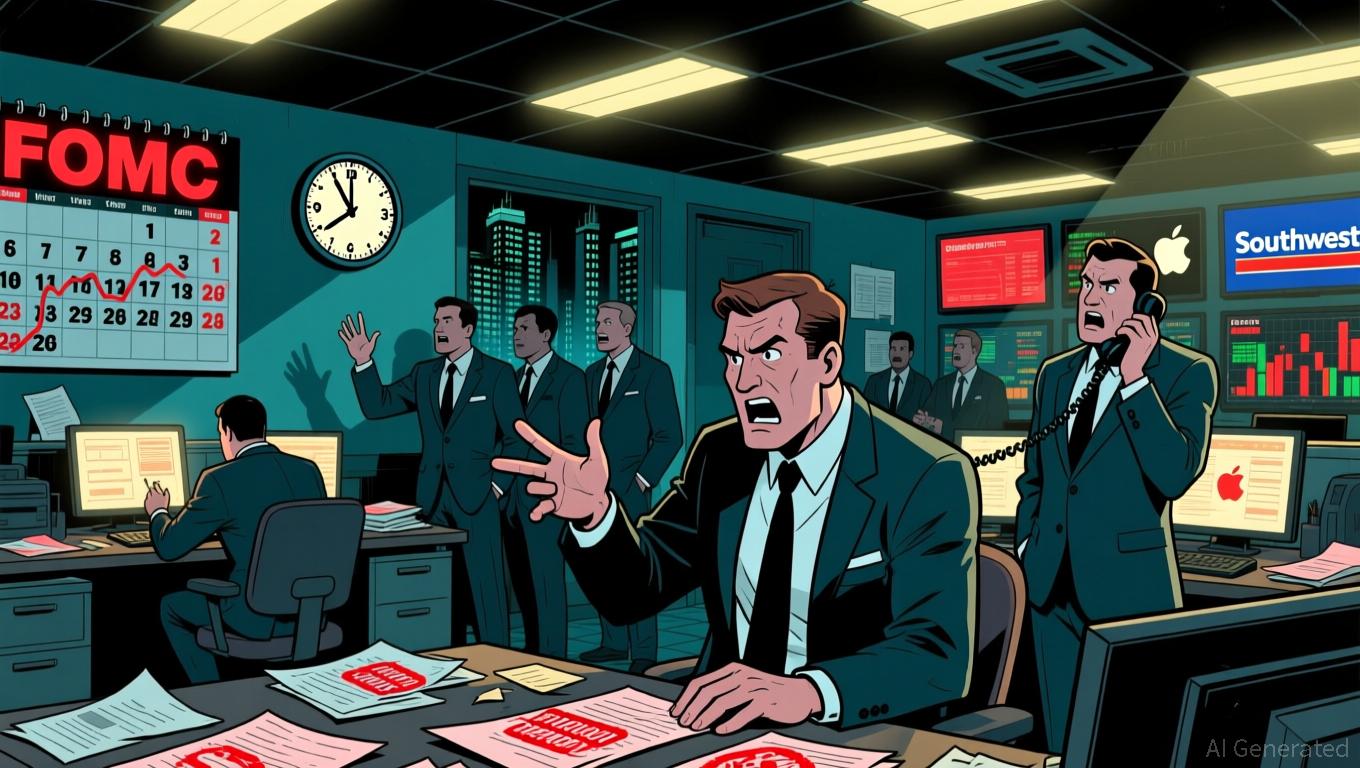Zcash News Update: ZEC Price Swings Cause Crypto Whale to Lose $1.17 Million on 10x Short
- A crypto whale's 10x short position on Zcash (ZEC) incurred $1.17M losses as prices fell below $360, triggering partial liquidations. - ZEC's volatility highlights risks in leveraged trading, with lower-cap assets facing manipulation and liquidity crises at platforms like Hyperliquid. - Whale activity intensified as Ethereum whales repositioned $1.39B and $5M in tokens amid regulatory uncertainties and market turbulence. - Leveraged ZEC positions show extreme duality: one whale's $8.28M unrealized gain c
A large investor has opened a heavily leveraged short bet on
The short position, worth $21.43 million, was

This aggressive shorting of ZEC has occurred alongside broader market instability, including a $4.9 million bad debt event at Hyperliquid, a decentralized exchange (DEX) that has repeatedly been the focus of manipulation attempts. The DEX’s liquidity provider (HLP) recently
The ZEC short also mirrors a wider pattern of whale activity in the digital asset space.
ZEC’s price has experienced significant volatility. The token has undergone sharp fluctuations lately, with traders using both long and short leverage to profit from its movements. The largest ZEC short on Hyperliquid, controlled by address 0xd47, has
The difficulties faced by the ZEC short come as institutions and analysts remain wary of the overall crypto sector. Hyperion DeFi, a publicly listed company with major HYPE holdings,
As the crypto industry contends with regulatory pressures and economic challenges, leveraged trades like the ZEC short highlight the risks involved. The ongoing interplay between whale maneuvers, market manipulation, and liquidity issues continues to shape the sector’s volatility, with both retail and institutional participants preparing for more market swings.
Disclaimer: The content of this article solely reflects the author's opinion and does not represent the platform in any capacity. This article is not intended to serve as a reference for making investment decisions.
You may also like
Blackout period stock transactions reveal shortcomings in the Federal Reserve's ethics oversight
- Former Fed Governor Adriana Kugler violated ethics rules by trading stocks during FOMC blackout periods in 2024, including a $100k–$250k Apple purchase. - Her spouse executed undisclosed trades in Cava Group and Southwest Airlines shares around restricted windows, breaching 2022 Fed policies banning individual stock holdings. - Kugler resigned in August 2024 after seeking denied waivers, leaving her seat vacant until replaced by Trump adviser Stephen Miran, highlighting partisan governance tensions. - OG

Ethereum Updates Today: The Supercycle Potential and Skeptics' Concerns
- Tom Lee argues Ethereum is entering a Bitcoin-like "supercycle," citing historical volatility as a path to mass adoption despite recent market turbulence. - Critics question Ethereum's unique value proposition, challenging its dominance against rivals and traditional finance integration. - Institutional adoption grows, with Harvard investing $443M in Bitcoin ETFs and MicroStrategy forecasting Bitcoin's $13T market cap by 2035. - Bitcoin's recent volatility contrasts with Ethereum's expanding Layer-2 netw

ZK Technology Experiences Price Spike: Advances in Blockchain Scalability and Signs of Institutional Embrace
- Zero-Knowledge (ZK) technology's valuation surged in 2025 due to blockchain scalability breakthroughs and institutional adoption, with ZK rollups achieving 15,000 TPS and $3.5B total value locked. - Platforms like ZKsync and StarkNet enabled real-world applications (tokenized assets, AI contracts) while Deutsche Bank and Sony adopted ZK for confidential settlements and digital rights management. - Ethereum's zkEVM integration and regulatory clarity via U.S. acts accelerated institutional trust, with proj

Vitalik Buterin Backs ZKsync: Igniting Ethereum Layer 2 Innovation and Ushering in the Next Era of DeFi
- Vitalik Buterin's endorsement of ZKsync's Atlas upgrade accelerates Ethereum's ZK-based scalability strategy, positioning ZKsync as a key DeFi infrastructure player. - The upgrade achieves 15,000+ TPS with near-zero fees via ZK Stack, enabling 30% stablecoin dominance and bridging Ethereum's L1-L2 liquidity gaps. - Institutional adoption surges as ZK token gains 50% post-endorsement, supported by $15B in ZK-related DeFi inflows and StarkNet's TVL tripling in Q4 2025. - Upcoming Fusaka upgrades (30,000 TP
